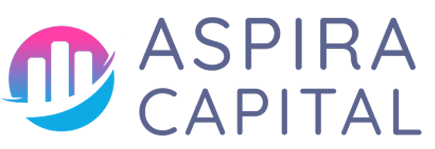STYLE 02
Frequently Asked Questions
A Small Business Loan (SBL) is a type of financing specifically designed to meet the financial needs of small businesses. It provides capital that can be used for various purposes, such as business expansion, purchasing equipment or inventory, covering operational expenses, or managing cash flow. SBLs are typically offered by banks, credit unions, online lenders, and government agencies, and they come with specific terms, interest rates, and repayment schedules tailored to the unique requirements of small businesses.
Qualification requirements for SBLs vary depending on the lender and loan program. Generally, lenders evaluate factors such as your credit score, business revenue and profitability, time in business, collateral, and business plan. Each lender may have specific eligibility criteria, so it’s essential to research and compare different options to find a loan program that aligns with your business’s qualifications. Additionally, some loan programs, such as those offered by the U.S. Small Business Administration (SBA), may have additional requirements.
The amount of funding you can receive through an SBL depends on several factors, including your business’s financial health, creditworthiness, and the specific loan program. SBLs can range from a few thousand dollars to several million dollars. Typically, lenders consider factors such as your business’s revenue, cash flow, and financial projections when determining the loan amount. It’s crucial to assess your funding needs carefully and work with lenders who offer loan programs suitable for the amount of capital required for your business objectives.
The approval time for an SBL can vary depending on factors such as the lender, loan program, and completeness of your application. Some lenders offer quick online applications with rapid approval decisions, providing funding in a matter of days or weeks. On the other hand, traditional lenders or government-backed loan programs may have a more extensive approval process, taking several weeks or even months. It’s important to be prepared with all the necessary documentation and work closely with your lender to expedite the approval process.
Interest rates and repayment terms for SBLs depend on factors such as the lender, loan program, creditworthiness, and collateral. Interest rates can be fixed or variable, and repayment terms can range from a few months to several years. It’s essential to carefully review and compare different loan offers to understand the interest rates, any additional fees, and the monthly or periodic payment obligations. Working with a trusted lender who provides transparent information about interest rates and repayment terms will help you make informed decisions for your business’s financial health.
STYLE 01
Frequently Asked Questions
While having good credit can increase your chances of obtaining a Small Business Loan, it’s still possible to secure funding with less-than-perfect credit. Some lenders offer loan programs specifically tailored for businesses with lower credit scores or may consider other factors such as your business’s revenue and cash flow. It’s important to explore alternative lending options, such as online lenders or community development financial institutions (CDFIs), which may have more flexible credit requirements.
Collateral requirements for SBLs vary depending on the lender and loan program. Collateral can be in the form of business assets, real estate, inventory, or personal guarantees. Some loan programs, like SBA loans, may require specific collateral, while others may offer unsecured loan options. It’s crucial to discuss collateral requirements with potential lenders to understand what assets may be eligible and the implications of providing collateral to secure the loan.
In general, SBLs provide flexibility in how you can use the funds to meet your business’s financial needs. You can utilize the capital for various purposes, including business expansion, purchasing equipment or inventory, working capital, marketing campaigns, or debt consolidation. However, it’s important to review the terms and conditions of the loan agreement to ensure that the intended use of the funds aligns with any restrictions imposed by the lender.
Startups can face more challenges in obtaining traditional SBLs due to limited financial history and lack of established business operations. However, alternative financing options, such as startup loans, equipment financing, or lines of credit, may be available specifically for new businesses. Additionally, exploring government-backed loan programs like SBA microloans or community-based lending initiatives can provide startup entrepreneurs with access to capital. It’s important to research and discuss financing options with lenders who specialize in working with startups.
When comparing Small Business Loan offers, it’s essential to consider factors such as interest rates, repayment terms, fees, loan amounts, eligibility requirements, and lender reputation. Assess the total cost of borrowing by considering both the interest rate and any additional fees associated with the loan. Evaluate the lender’s customer service, online tools, and resources available to support your loan application and ongoing relationship. By conducting thorough due diligence and seeking expert advice if needed, you can make an informed decision that aligns with your business’s financial goals.
Many SBLs offer the flexibility to pay off the loan early without incurring prepayment penalties. However, it’s important to review the terms and conditions of the loan agreement to understand if any prepayment penalties or fees apply. Some loans may have specific provisions regarding early repayment, such as a minimum period before early repayment is allowed or a small fee for early payoff. Clear communication with the lender is crucial to ensure you have a complete understanding of the loan terms and any implications of early repayment.
